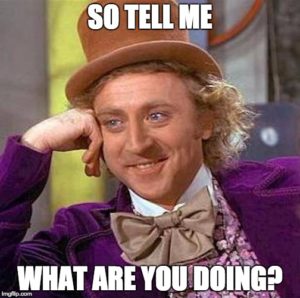 Since January 2016, I have been traveling across the United States speaking about history, podcasting, and digital media at conferences, events, and interviews.
The experience has revealed that people have 3 key questions for me:
Since January 2016, I have been traveling across the United States speaking about history, podcasting, and digital media at conferences, events, and interviews.
The experience has revealed that people have 3 key questions for me:
1. What is the role of podcasts and other digital media in the future of historical scholarship?
2. What has the impact of Ben Franklin's World been on furthering historians' ideas about history?
3. How are you making a living/what are you doing with your career?
I answered the first two questions in a previous post, "Digital Media and the Future of the Historical Profession." In this post, I'll answer the third question(s): "How are you making a living/What are you doing with your career?"
Digital vs. Traditional Scholarship
I’m not making a living podcasting.
I'm still living on the "18th-century patron support plan" provided by my partner, Tim.
I am making some money podcasting. The Omohundro Institute pays me to produce the “Doing History” series (we share series editorial and production decisions) and I make about $140/month from crowdfunding pledges. These funds have and do pay for most of my monthly podcast expenses. They do not pay me for my time.
I’m in the process of figuring out how I will make money from podcasting to support my scholarship and work. The delay in figuring this out has been the fact that I’ve needed to undergo a HUGE mental shift in how I view myself as a historian.
Ben Franklin’s World started as an experimental side project. At most, I thought it would be a fun outlet for my public history and scholarly communications interests. I never intended for podcasting to turn into my full-time scholarship.
I’ve always thought of myself as a book and article historian. Books and articles have always been how most historians prove themselves and showcase their ideas and research. As such, making the mental shift to seeing myself as a digital media historian has been a long and hard one. I'm not even sure I've made the full mental shift yet. My decisions about how to spend my work time are still fraught with tension between digital and traditional media. (Old habits and thoughts really do die hard.)
Although I still feel a desire to produce scholarship in text-based, traditional media, I have decided to continue making digital media my primary scholarly output. I've experienced a lot of success with it and I tell myself that working as a digital media historian doesn't mean I can't write books and articles too. Books and articles will just have to become my side projects.
Now that I've made that decision, I need to find a way to support my scholarship.
Going Corporate & Starting a Network
In my dream scenario, a forward-thinking college or university would hire me in an editorial faculty role. I would continue to produce Ben Franklin's World and other podcasts I have in the works, while teaching undergraduate and graduate students how to do all aspects of this new, historical work along the way.
With that said, I’m a pragmatist. I've spoken with department heads and colleagues and I see that most of the historical profession is still 5-10 years away from recognizing what people in quicker-to-change professions see: that digital media is here to stay, that we shouldn’t be afraid of it, and that it’s highly effective at conveying and creating awareness about ideas, products, and services. Therefore, I’ve decided to create my dream job the old fashioned way: I've started a business.
I’m going to experiment with my new company and see if I can build it to the point where it pays for my scholarship and time and hopefully the scholarship and time of others.
The company is called Discover History Media Group, LLC. My first act as a business owner was to hire a media agent to seek sponsors for Ben Franklin’s World. The agent has several potential deals in the works, nothing has been finalized. I'm being mindful of the types of advertisers I want to sponsor my scholarship and I hope that by mid-to-late fall we will have found a good fit for the podcast.
Discover History Media Group LLC is also the legal entity under which I am starting the Explore History Network—a digital media network of reliable, high-quality history content created by historians. The Explore History Network will launch its second podcast by the end of this year and its third podcast by the end of 2017. The network will start with podcasts and will add blogs, video, and other digital media as it matures.
Over time, the network will (hopefully) fund itself from different revenue streams: sponsorships, member dues, custom content creation for groups and organizations, consulting fees, supporter pledges, and show merchandise.
Admittedly, I'm reluctant business owner. I know my strengths. Creating, researching, writing, launching, producing, and communicating historical content are strengths. Managing a business and creating a long-term, implementable plan for its success...I need to develop this skill set or partner with someone who has it.
Parting Thoughts
On a different note, all of the speaking I’ve done this year has combined with the success of Ben Franklin's World to bring forth a new revenue stream: paid speaking. I have three paid speaking engagements this fall with academic organizations and institutions and one that’s almost confirmed for next spring.
So no, I'm not making a living from podcasting, but I have a plan that will hopefully change that. I'm in the process of getting organized and I'm looking forward to seeing if the new scholarship I produce will be as successful and as well received as Ben Franklin's World.

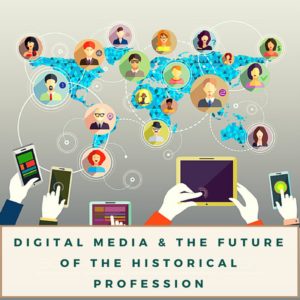 It’s August and I’ve somehow found myself with 7, straight weeks at home. It’s the first time I’ve been home for a full month this year. (Hence why this blog has been a bit of a ghost town.)
Since January, I’ve been on a type of “history podcast tour.” Historians & history lovers have become fascinated with
It’s August and I’ve somehow found myself with 7, straight weeks at home. It’s the first time I’ve been home for a full month this year. (Hence why this blog has been a bit of a ghost town.)
Since January, I’ve been on a type of “history podcast tour.” Historians & history lovers have become fascinated with 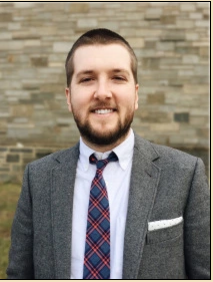 I’m pleased to announce that Christopher Jones has joined the Ben Franklin’s World team for the summer.
Christopher is a contributing blogger to
I’m pleased to announce that Christopher Jones has joined the Ben Franklin’s World team for the summer.
Christopher is a contributing blogger to 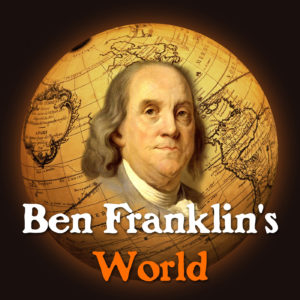 As
As 
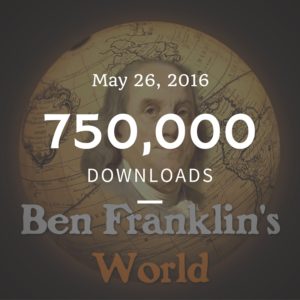 Aside from the Academy nomination, Ben Franklin's World hit another HUGE milestone this week. It surpassed 750,000 downloads.
Aside from the Academy nomination, Ben Franklin's World hit another HUGE milestone this week. It surpassed 750,000 downloads.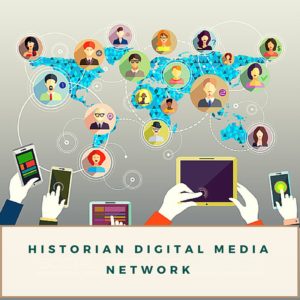 On March 3, 2016, I explored the idea of whether it makes sense to create a
On March 3, 2016, I explored the idea of whether it makes sense to create a 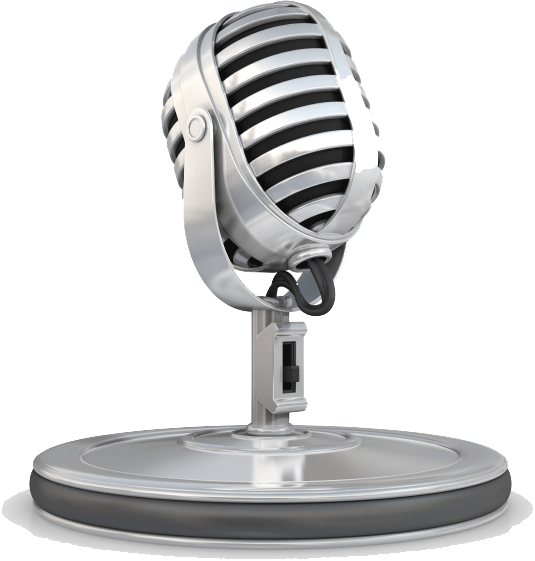 Podcasts are hot right now.
Podcasts are hot right now.